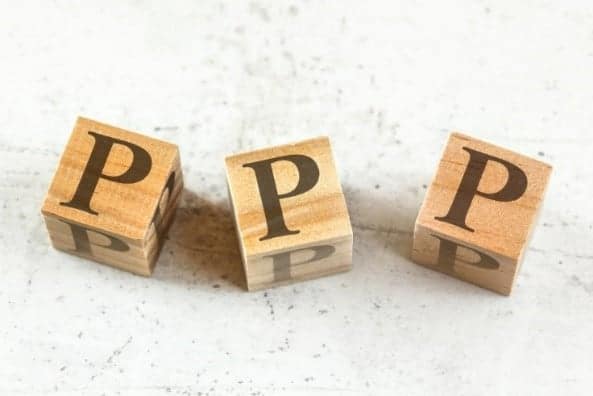As a sole proprietor, the daily tasks and challenges of managing a business may quickly exhaust you mentally and physically. With the current threat of a global crisis, you may feel pushed to your limit. Some businesses have the capacity to fulfill online orders or offer drive-thru products, yet others may fight to reopen after closing doors.
As the economy adjusts to the current Coronavirus pandemic, many sole proprietorships are becoming severely impacted. In the midst of chaos, sole proprietors may seek assistance from resources like the Small Business Administration (SBA). However, confusion often surrounds sole proprietorship eligibility to receive disaster relief loans during the current global pandemic. In the content below, we discuss if sole proprietors can get SBA loans and how to apply for one.
Can Sole Proprietors Get the PPP Loan?
What is the PPP loan?
A federal relief initiative established by Congress, the Paycheck Protection Program (PPP) is executed through the joint effort of the U.S. Treasury Department and the Small Business Administration. All participating banks must adhere to instituted rules, requirements, processes, and protocols.
PPP partners with small businesses to pay their employees of up to eight weeks of payroll. Additionally, the funding helps small businesses cover operating costs such as mortgage, utilities, or rent. Fortunately, the SBA will forgive PPP loans if businesses apply the funding accordingly.
Therefore, the loan is designed to provide small businesses with the necessary resources to maintain payroll, cover overhead costs, and hire back employees who have been laid off. The entire program will authorize up to $349 billion in relief.
Is the PPP loan available?
Since April 3, 2020, both small business and sole proprietor applications to the Paycheck Protection Program have been processed by approved lenders. The loan will be available until June 30, 2020.
Do sole proprietors qualify for the PPP loan?
Conditional to the sole proprietor beginning their operations before February 15, 2020, they qualify for the loan. Sole proprietors can apply for 2.5 times their average monthly payroll costs. According to the Coronavirus Aid, Relief, and Economic Security Act (CARES Act), sole proprietorship payroll costs include:
The sum of payments of any compensation to or income of a sole proprietor or independent contractor that is a wage, commission, income, net earnings from self-employment, or similar compensation and that is in an amount that is not more than $100,000 in 1 year, as prorated for the covered period.
How to apply for the loan
The PPP loan application is administered online via eligible lenders. According to the following SBA statement:
You can apply through any existing SBA 7(a) lender or through any federally insured depository institution, federally insured credit union, and Farm Credit System institution that is participating. Other regulated lenders will be available to make these loans once they are approved and enrolled in the program. You should consult with your local lender as to whether it is participating in the program.
To apply, complete and submit the Paycheck Protection Program loan application to an eligible lender with required documentation which may include:
- 2019 tax return, including Schedule C
- 2019 Form 1099-MISC.
- 2019 payroll tax forms 940/941
- Documents substantiating income and expenses – this could include invoices, earnings statements, or bank statements
Can Sole Proprietors Get the Economic Injury Disaster Loan (EIDL)?
What is the Economic Injury Disaster Loan?
In response to the COVID-19 pandemic, the SBA established the Economic Injury Disaster Loan which honors small business owner applications for emergency advances up to $10,000. Following shortly after, the small business owner could also receive a more extensive loan.
The EIDL is designed to provide immediate economic relief to small businesses experiencing revenue loss. The emergency loan advance (up to $10,000) is forgivable and will not require repayment.
Your company’s emergency advance is determined by allocating $1,000 per employee. Disaster Loan advance funds are made available within days following a successful application.
Is the EIDL loan available?
The loan is available to small businesses with fewer than 500 employees, including:
- Sole proprietorships
- Independent contractors
- Self-employed persons
Does my sole proprietorship qualify for the EIDL?
In order to qualify, your sole proprietorship must be located in a declared disaster area. Due to the pandemic’s widespread nature now applying to all 50 states, nearly any sole proprietorship qualifies by location.
How to apply for Injury Disaster Loan
- Complete the loan application form online at SBA.
- Gather required documents, including an income statement (February 2019 to January 2020).
- A loan officer may contact you after reviewing your credit to request additional documentation.
- If approved, you can either accept or decline the loan. Initial disbursement begins within five days of accepting the loan, and repayment begins 11 months later.
Economic Injury Disaster Loan Parameters
- Maximum EIDL is a $2 million working capital loan at 3.75% interest rate (2.75% for non-profits) with up to a 30-year loan term
- Payments are deferred for one year
- Up to $200,000 can be approved without personal guarantee
- No first-year tax returns are required as approval can be based on credit score
- Borrowers must allow the SBA to review tax records
- Borrowers do not have to prove they could not get credit elsewhere
- Collateral is not required for loans equal to or less than $25,000. For loans greater than $25,000, general security interest in business assets will replace real estate as collateral.
Can Sole Proprietors Get Unemployment Benefits?
Traditionally, sole owners and proprietors struggle to receive unemployment benefits, simply because the self-employed are not technically “employees.”
However, for individuals impacted by COVID-19, the CARES Act has made significant changes to traditional unemployment compensation.
- The CARES Act added $600/week to the weekly benefit amount of an impacted worker.
- The CARES Act expanded coverage to include self-employed workers (previously excluded) who unequivocally cannot work because of the Coronavirus.
- In some cases, the CARES Act altered the requirement to consistently seek work during unemployment.
Should Sole Proprietors Apply for Unemployment or the PPP?
Presented with multiple CARES Act disaster relief options, which is best for sole proprietors? Should you file for unemployment benefits or apply for the forgivable PPP loan?
For every self-employed taxpayer, the answer depends on number of employees under the taxpayer’s care and intended proceed use. Self-employed taxpayers with employees almost always receive more money through the Paycheck Protection Program. For sole proprietors, without employees, earning under $950 in weekly profit and business expenses, consider unemployment compensation the simplest solution. Poole College of Management News answers this question well:
For example, a sole proprietor with no employees who has $1,000 per week in net earnings from self-employment and ongoing business rent expense of $1,000 per month can receive a PPP loan of $10,000, which is intended to provide for eight weeks of funding. After they pay their rent, they are left with $8,000 for eight weeks, which is automatically forgivable— the full income they would have realized from normal operation of their business. Additionally, under current law, none of the $10,000 received from PPP is taxable income even after the loan is forgiven. If this sole proprietor had elected unemployment, they would have received $7,600 and would need to include that $7,600 in their income for tax filing purposes (and deduct the $2,000 of two months’ business rent paid from their income). This income inclusion may or may not have tax consequences depending on the taxpayer’s other income during the year and how rapidly normal economic activity resumes following COVID-19.
Currently, sole proprietors can still apply for a variety of CARES Act financial relief programs. If one of these programs can help your business, we recommend applying quickly. Although the application process may be simple and streamlined, a quick processing and response time is not guaranteed.
If you have any further questions regarding aid for sole proprietors during the current crisis, please to not hesitate visit this page in Banks.com, we work hard to be your trusted, go-to resource for every financial endeavor.







